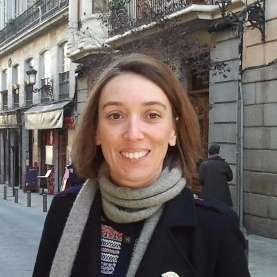Javier Perianes is perhaps the most internationally active of Spanish pianists, his brilliant career having included playing with orchestras in five continents. In spite of being faced with a nightmare diary, Javier was kind enough to take the time to answer our questions.
KdM: That aunt of yours who introduced you to the piano had great intuition...
JP: You would have to ask her! But honestly, I think my aunt Isabel only wanted was to make me discover the sound of the piano and move me in the direction of the instrument she played before any other.
Had you ever dreamed of being where are you now?
I am not a particularly dreamy person, I like going step by step and enjoying reality and not hypotheticals. Also I don’t think I have reached a particular place: I am still high, my motivation to keep working and discovering remains unchanged.
Your diary is packed. Where do you get so much energy from?
It is an absolute privilege to be devoted to what one is deeply passionate about, the music. I think it's the music itself that provides the energy to face new challenges and projects. However, it also helps to be well organised in one’s work, and to have constant enthusiasm and dedication.
The enthusiasm or motivation with which one approaches the piano changes in the course of time. Where do you think you are now?
I would say I feel the same curiosity, or even more, than the young man who began studying music at Nerva conservatoire several years ago. Clearly, the responsibility and the timing are different, but the same attitude and hard work remain. I am very happy to carry out this beautiful vocation.
Tell us about your debut at the Proms this summer...
The Proms have been a unique experience for me. It has been an absolute privilege to take part in a festival of such a long tradition and prestige with the support of the BBC Symphony, an orchestra to which I feel a special attachment, and a conductor of such status as Sakari Oramo. What made everything even more special was playing the Saint-Saens Piano Concerto no. 2, a beloved piece by the Proms wonderful audience. I will always cherish memories of that unforgettable night.
You played at the opening concert of Orquesta Nacional de España’s current season. How was the reunion?
It was very special. The last time I played in the ONE’s season was in 2013, with Maestro Frühbeck de Burgos, although I have had the opportunity to collaborate with the them on tours outside Spain. It was a real pleasure to work with David Afkham again, he is a great musician and we really enjoyed making music together.
You have played with orchestras from five different continents. Does geography influence the sound of the orchestras? Have you found the sound you are looking for in any of them?
I believe that each orchestra has a unique sound, shaped and moulded by the many conductors who have influenced the musicians in the orchestra. I have played with many orchestras and I would say it is rather a question of tradition. If I can point to a single special memory of a sound that fascinated me, it was the Vienna Philharmonic, when we were playing Beethoven 4th: that chord in B major right after the solo piano introduction was unforgettable.
Playing with so many orchestras and in so many places will determine, to some extent, your repertoire. What works or composers have a prominent place in your repertoire right now?
During this season I have planned concerts for piano and orchestra by various composers: Mozart, Beethoven, Ravel, Saint-Saëns, Schumann, Brahms, Bartok, Grieg… You can suggest a work to some orchestras whereas with others, it’s more difficult, because there is some programmatic idea that makes one concerto more appropriate than another.
Your agenda also includes chamber concerts. How do you go about them?
It is a fantastic experience to make chamber music with colleagues such as the Cuarteto Quiroga or Tabea Zimmermann. We can find true masterpieces of the great composers in chamber music. It is a real pleasure to rehearse, work and play with musicians you admire who are also very good friends.
There is a new recording coming up...
In the next months, a recording will be released that we made with the Munich Philharmonic and Pablo Heras-Casado in Munich in September 2016. Dedicated to Bartók, it features his Concerto for Orchestra and the Concerto no. 3 for Piano and Orchestra. I am also taking part in a project with Harmonia Mundi that will be launched later in 2018, a recording with different artists dedicated to French composer Debussy to mark the centenary of his death.
Singers leave certain roles to be tackled later in their careers. Do pianists do the same? Are there any works you have decided not to play in public yet?
I have not thought about works that I would not play in public in this moment. I prefer to focus on the works that I would like to include in my repertoire, prepare them peacefully and with great care and start planning their inclusion in my calendar.
While I was preparing these questions, I was listening to your Schubert album. The Andante sostenuto from the D960 Sonata moved me ...
I appreciate your words. Of course, that second movement is of enormous depth and emotionally charged.
Translated from Spanish by Katia de Miguel


